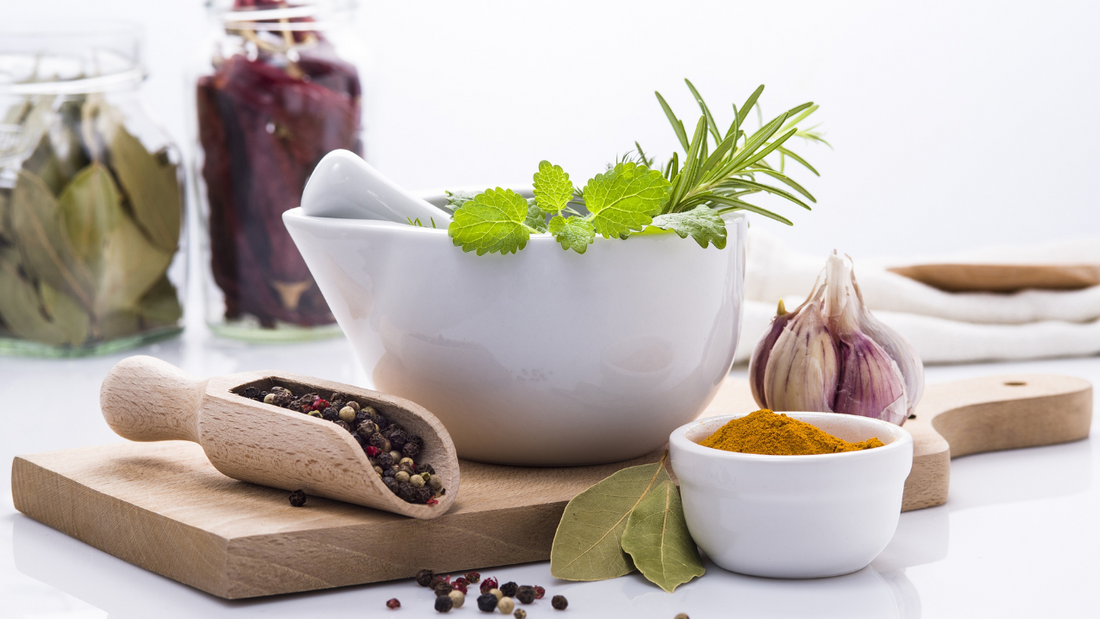Galactagogue Herbs: Supporting Lactation Naturally

Share
What Is a Galactagogue?
A galactagogue is a substance that may promote or support breast milk production in humans or animals. These can include herbs, foods, or medications. Galactagogue herbs are often used by mothers seeking to support their milk supply, particularly when facing challenges like low production or increased infant demand. While some herbs show promise in preliminary studies, their effectiveness can vary based on individual factors, dosage, and preparation.
To learn more about how herbs interact with the body, check out our blog, "Herbal Actions: A Complete Guide to Using Herbs Effectively".
How Do Galactagogue Herbs Work?
Galactagogue herbs may support lactation through various mechanisms, such as stimulating mammary glands or supporting hormonal balance. Some contain phytochemicals like flavonoids, saponins, or phytoestrogens, which may influence prolactin (a hormone involved in milk production) or improve milk flow. These herbs are commonly consumed as teas, capsules, or tinctures. However, scientific evidence varies, and more research is needed to confirm their efficacy and safety for all users.
Potential Benefits of Galactagogue Herbs
Galactagogue herbs may offer the following benefits when used under professional guidance:
-
Supporting Milk Production: Some herbs may help increase milk supply in mothers experiencing low production, based on preliminary studies.
-
Promoting Maternal Wellness: Certain herbs provide additional nutrients or support digestion and energy, which may benefit overall health during breastfeeding.
-
Natural Approach: Herbs offer a traditional, holistic option for mothers seeking to support lactation naturally.
Note: Results vary, and not all herbs are suitable for everyone. Consult a lactation consultant or healthcare provider to determine the best approach for your needs.
10 Galactagogue Herbs to Know
Below, we explore some commonly used galactagogue herbs, their traditional uses, and the current state of scientific evidence. Always consult a healthcare provider before use, as herbs may cause side effects or interact with medications.
1. Fenugreek (Trigonella foenum-graecum)
Fenugreek seeds are among the most popular galactagogue herbs, traditionally used to support lactation. Preliminary studies suggest fenugreek may increase milk production in some women, potentially due to phytoestrogens that mimic estrogen’s effects. A 2018 study found improved milk volume in some participants, but results vary, and side effects like digestive upset or a maple-like odor may occur. Fenugreek is available in teas, capsules, or tinctures and may also support digestion.
Caution: Fenugreek may not be suitable for those with allergies or certain medical conditions. Consult a healthcare provider.
2. Blessed Thistle (Cnicus benedictus)
Blessed thistle is traditionally used to support milk flow and digestion due to its bitter compounds. While often combined with fenugreek, scientific evidence for its lactation benefits is limited and mostly anecdotal. It’s available as tea or capsules and may support liver health or reduce inflammation, though more research is needed.
Caution: Its bitter taste may be unpalatable for some, and safety data is limited.
3. Fennel (Foeniculum vulgare)
Fennel seeds, with their licorice-like flavor, are used traditionally to support lactation and digestion. Their phytoestrogen content may stimulate milk production, but evidence is mostly from small studies or traditional use. Fennel is gentle, often found in teas or supplements, and may help reduce gas in mothers and infants.
Caution: Use in moderation, as excessive amounts may cause side effects.
4. Milk Thistle (Silybum marianum)
Known for liver support, milk thistle may also aid lactation due to its silymarin content. Limited studies suggest it could support milk production, but evidence is not robust. Available in capsules or teas, it may also promote detoxification and postpartum recovery.
Caution: Consult a provider, especially if you have liver conditions or are taking medications.
5. Alfalfa (Medicago sativa)
Alfalfa, a nutrient-rich herb, is traditionally used to support lactation due to its phytoestrogens and vitamins (e.g., calcium, vitamin K). While nutrient-dense, evidence for its galactagogue effects is limited. It’s consumed as tea, capsules, or food and may support overall maternal nutrition.
Caution: Avoid if you have autoimmune conditions or allergies to legumes.
6. Goat’s Rue (Galega officinalis)
Goat’s rue is traditionally used to enhance milk production and mammary tissue growth. Its galegin compound may support lactation, particularly for mothers with low supply or post-surgery, but studies are scarce. It’s available in teas or tinctures and may also support metabolic health.
Caution: Potent and may interact with medications; use only under supervision.
7. Anise (Pimpinella anisum)
Anise seeds, with a licorice-like flavor, are used traditionally to support milk production and digestion. Their phytoestrogen content may play a role, but evidence is limited. Anise is found in teas or supplements and may ease gas or colic in infants.
Caution: Use sparingly to avoid potential side effects.
8. Nettle (Urtica dioica)
Nettle, rich in iron, calcium, and vitamin K, is traditionally used to support lactation and maternal nutrition. While nutrient-dense, its galactagogue effects lack strong evidence. It’s consumed as tea or capsules and may reduce inflammation.
Caution: May cause mild irritation if not prepared properly.
9. Shatavari (Asparagus racemosus)
Shatavari, an Ayurvedic herb, is traditionally used to support lactation and hormonal balance due to its saponins and phytoestrogens. Small studies suggest it may increase milk production, but more research is needed. It’s available in teas, capsules, or powders and may promote postpartum vitality.
Note: Zuma Nutrition includes shatavari in our Women’s Hormones Tonic. Consult a provider before use.
10. Moringa (Moringa oleifera)
Moringa, a nutrient-dense herb, is gaining popularity for lactation support. Studies suggest it may increase milk production due to its rich vitamin and antioxidant content, though evidence is preliminary.